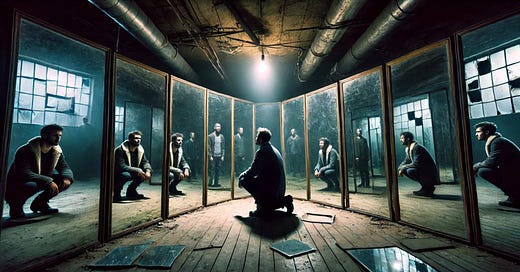The story begins, as all stories must, with action. Why? Because action grabs the reader by the throat and whispers, “Don’t look away. You might miss something important.”
The Protagonist, a man whose name doesn’t matter yet, stumbles into the frame—literally. His foot catches on the plot, which has been set deliberately in his path, and he falls face-first into the dark, wet pavement. He tastes blood, feels the cold slap of reality against his skin, and smells rain on asphalt, sharp and metallic. These are the details that ground us in his world—the five senses pulling us deeper into the narrative. Without them, the story floats away like a helium balloon, untethered to anything real.
“Where am I?” he mutters, dragging himself upright. He doesn’t know yet that he’s in the Inciting Incident.
Behind him, Footsteps echo—capital F, because these aren’t just any footsteps. They belong to the Antagonist, though we won’t meet them for a few more paragraphs. Suspense is everything. It’s the itch you can’t scratch, the low hum of unease that builds until the big payoff. If we gave you the Antagonist now, you’d shrug and put the story down. We can’t have that.
Keep reading with a 7-day free trial
Subscribe to Bathroom Breaks & Bedtime Tales to keep reading this post and get 7 days of free access to the full post archives.




